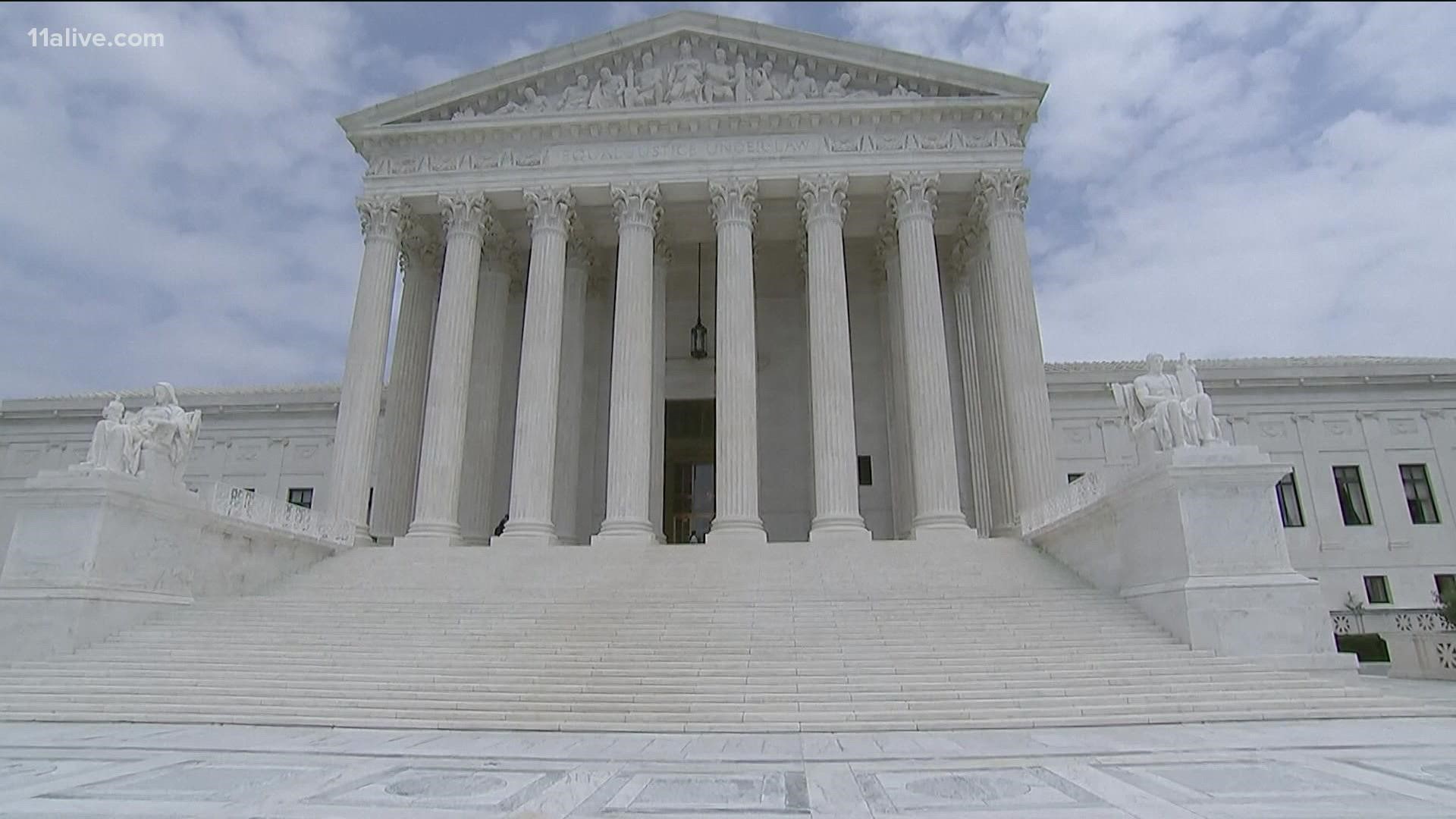ATLANTA — Those who have been relying on the eviction moratorium to keep rent payments at bay and stay in their home through the difficulty of the pandemic were dealt a serious setback by the Supreme Court this week.
The nation's high court ruled 6-3 that the CDC did not have the authority to extend the moratorium on evictions, writing that any such policy must be passed into law by Congress.
Unfortunately for renters who have relied on the moratorium, Congress could not agree to do that earlier in the summer and so the Supreme Court's decision ended the eviction ban effective immediately.
That means evictions are likely to take place around the country starting this weekend.
When does the moratorium eviction end?
- With the Supreme Court's decision, it is over now
But there is still some good news for renters
11Alive legal analyst Page Pate says eviction bans passed by individual cities and counties remain lawful, and offer varying levels of protection.
He also noted that while Georgia law generally makes it easy for landlords to win eviction cases, renters do currently have some legal tools they can make use of.
For one, if you find yourself having to go to court over eviction proceedings, you can simply try to get a judge to put things off.
"If you're a tenant going into court on your own, fighting an eviction, ask a judge to put a hold on it," Pate said. "Ask the judge to stay proceedings given how bad COIVD is right now, and you may get some help, you may get relief."
Beyond that, there are rental assistance programs you can turn to, including a Georgia program that just expanded to include everyone in the state.
The Georgia Department of Community Affairs says people can apply for assistance at GeorgiaRentalAssistance.ga.gov or by calling or texting 833-827-RENT, with language services available in English, Korean, Mandarin Chinese, Spanish and Vietnamese.

